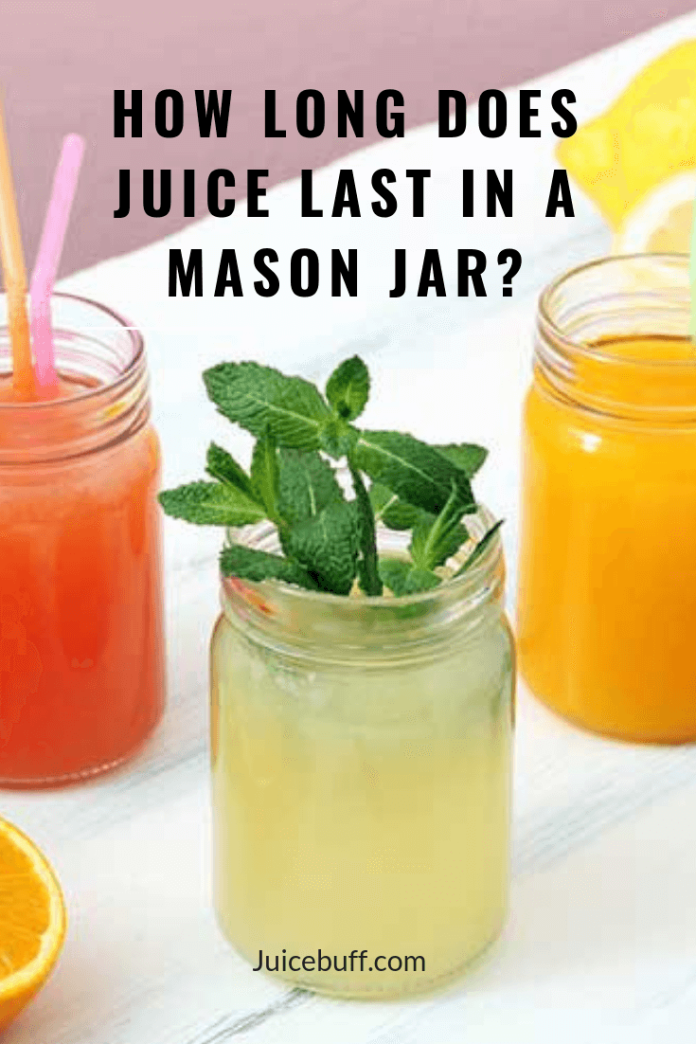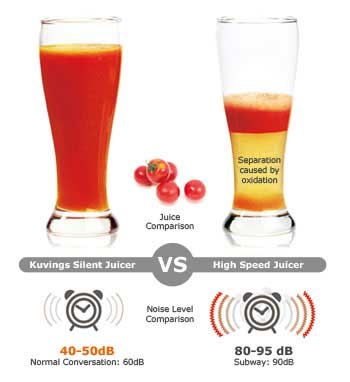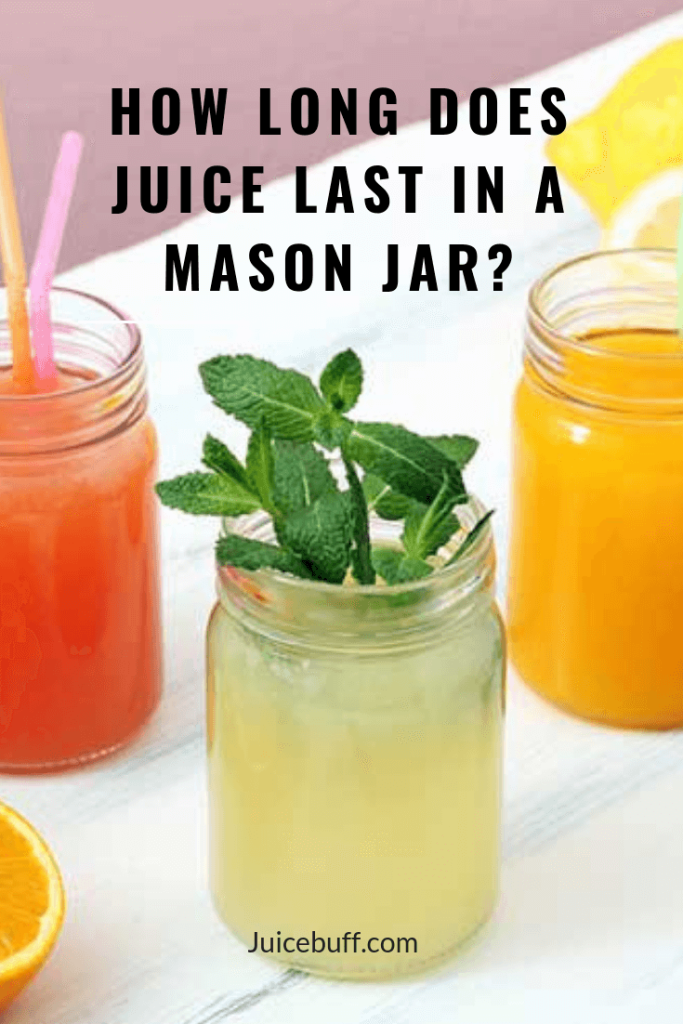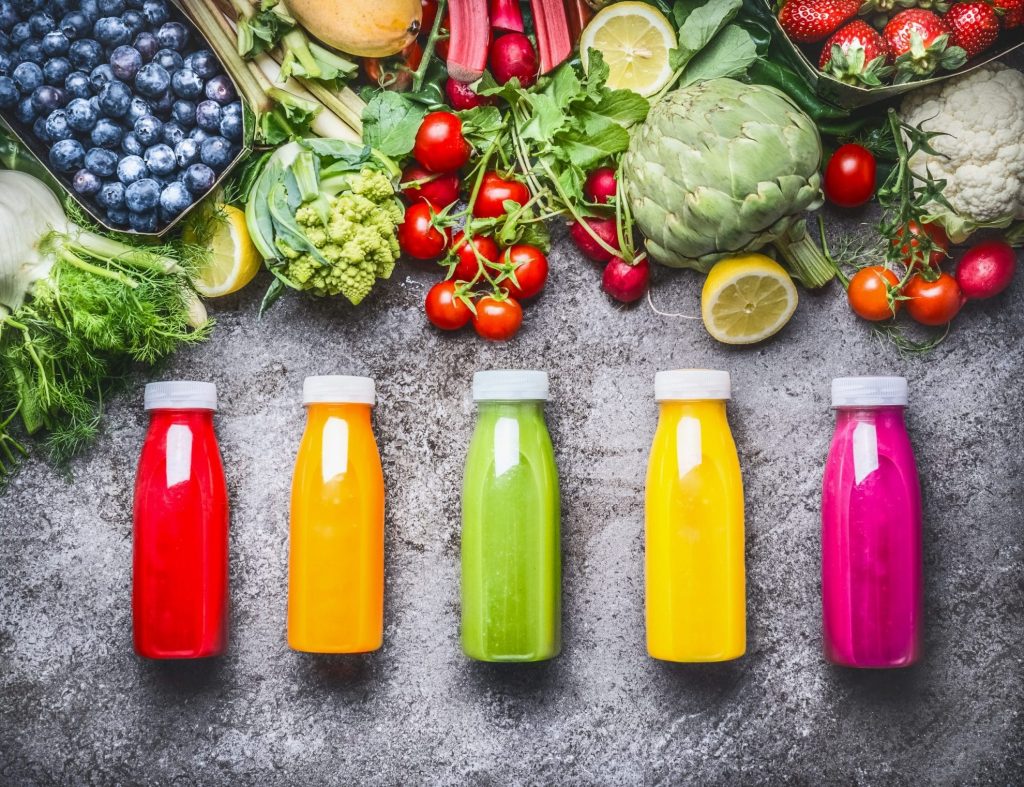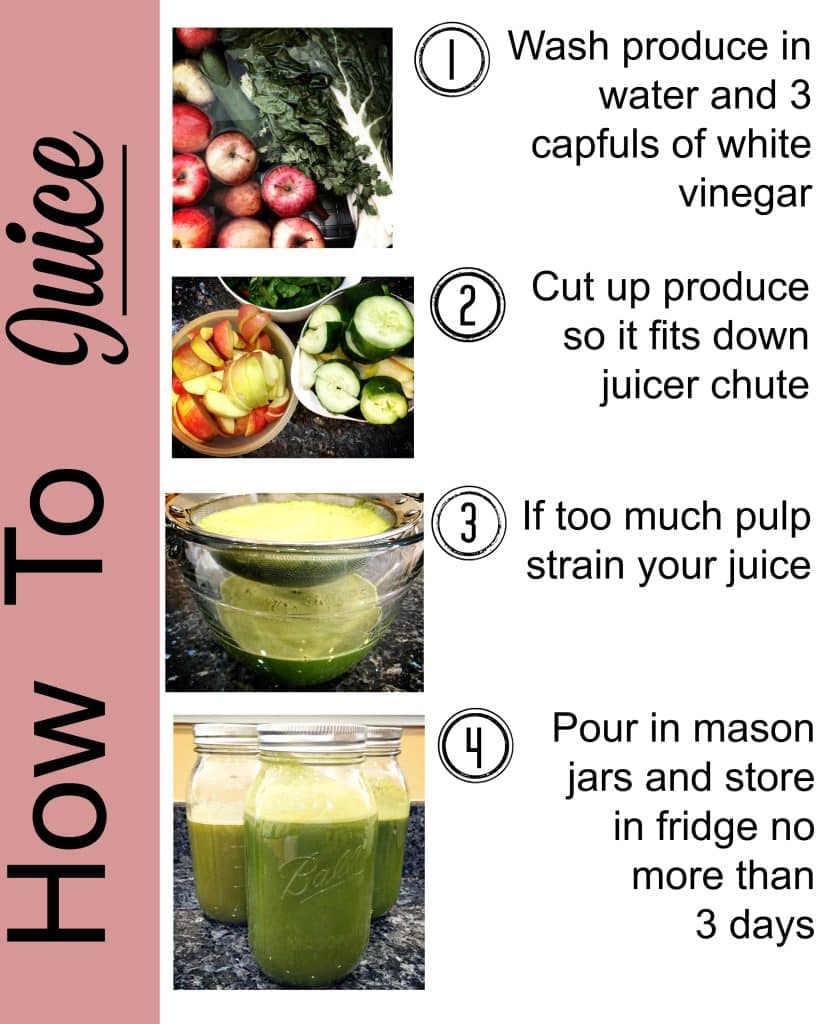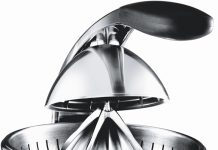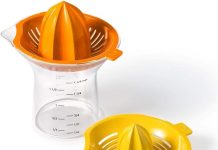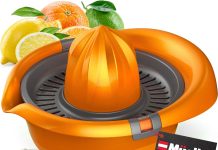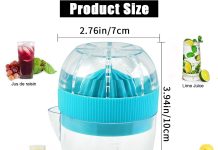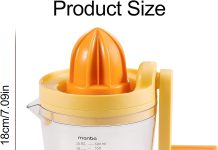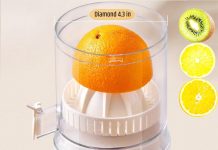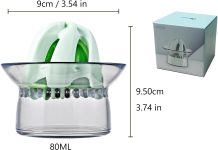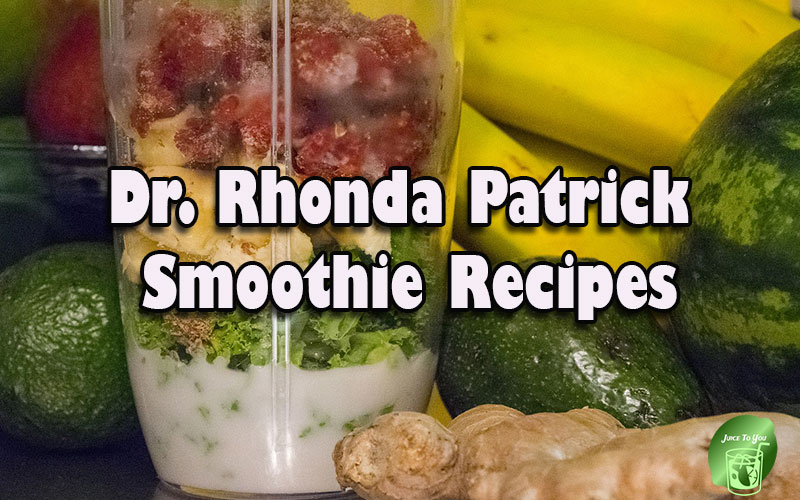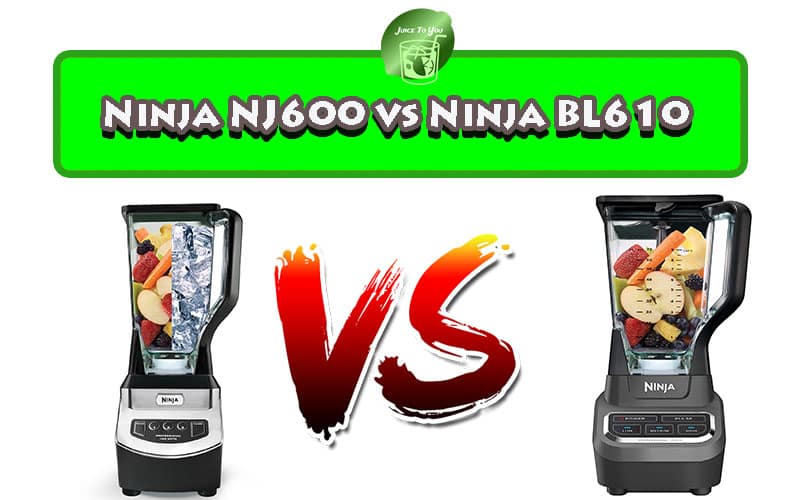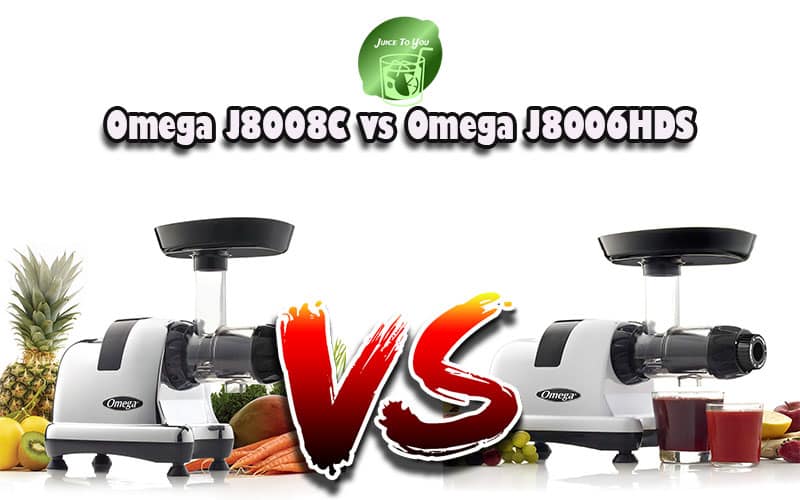Imagine waking up in the morning with a craving for a refreshing glass of freshly squeezed juice. You grab your favorite fruits, squeeze the juice with love, and enjoy every sip. But then, you start wondering, how long can you keep that delicious juice in the refrigerator before it goes bad? Well, fear not my friend, because today we are here to shed light on this juicy mystery. We will unveil the secrets behind storing fresh juice and provide you with all the information you need to ensure your beloved concoction stays fresh and tasty for as long as possible. So sit back, relax, and let us guide you through the wonderful world of refrigerator storage for fresh juice.
This image is property of www.juicingtoprofit.com.
Review contents
Factors Affecting Fresh Juice Storage
When it comes to storing fresh juice, there are several factors that can have an impact on its shelf life. By understanding and managing these factors, you can ensure the freshness and safety of your juice for as long as possible.
Type of Juice
The type of juice you’re storing plays a significant role in determining its storage requirements. Different juices have varying levels of acidity, sugar content, and natural preservatives, all of which can affect their shelf life. Citrus juices, such as orange or grapefruit juice, tend to have a shorter shelf life compared to apple or grape juices, for example.
Storage Container
Choosing the right storage container is crucial for preserving the freshness of your juice. Ideally, you should opt for glass or food-grade plastic containers that are airtight and can effectively seal out moisture and odors. Avoid using containers made of reactive materials, such as metal or certain types of plastic, as they can interact with acids in the juice and compromise its quality.
Temperature
Temperature is a critical factor in maintaining the freshness of fresh juice. It’s recommended to store juice in the refrigerator at a temperature between 32°F (0°C) and 40°F (4°C). This lower temperature helps to slow down the growth of bacteria and other microorganisms that can lead to spoilage. Avoid storing juice at room temperature, as higher temperatures can accelerate the deterioration process.
Exposure to Light
Exposure to light can cause the degradation of vitamins and antioxidants in fresh juice, leading to a loss of nutritional value. It’s best to store juice in opaque or dark-colored containers to minimize light exposure. Keep the containers in a cool, dark place or in the refrigerator. If using clear containers, ensure they are placed in a dark area or cover them with a cloth or non-transparent material to block out light.
Presence of Oxygen
The presence of oxygen can contribute to the oxidation of the juice, resulting in a decrease in flavor, color, and nutritional quality. Airtight containers help minimize oxygen exposure, but it’s important to fill the containers as close to the top as possible to further reduce the amount of oxygen present. Alternatively, consider using vacuum-sealed containers to remove excess air and prolong the shelf life of your juice.
Added Preservatives
Adding preservatives to fresh juice can help extend its shelf life by inhibiting the growth of bacteria and other microorganisms. Natural preservatives such as lemon juice or citric acid can be added to increase acidity and create an inhospitable environment for spoilage-causing organisms. However, it’s essential to follow recommended guidelines for preservative usage and be aware of any potential allergies or sensitivities to these additives.
Recommended Storage Times for Different Juices
While the factors mentioned above play a significant role in determining the storage life of fresh juice, it can also vary based on the specific type of juice. Here are some general guidelines for the recommended storage times for different juices:
Citrus Juices
Citrus juices, including orange, grapefruit, and lemon juice, are best consumed within 2-3 days when stored in the refrigerator. Due to their high acidity, they are more prone to spoilage and flavor deterioration compared to other types of juices.
Apple Juice
Apple juice has a slightly longer shelf life and can be stored in the refrigerator for about 5-7 days. However, it’s important to note that freshly squeezed apple juice may have a shorter shelf life compared to commercially processed juices, which often contain added preservatives.
Grape Juice
Freshly squeezed grape juice can be stored in the refrigerator for approximately 5-7 days. Like apple juice, commercially processed grape juice may have a longer shelf life due to the use of preservatives.
Berry Juices
Berry juices, such as strawberry or raspberry juice, should ideally be consumed within 2-3 days when stored in the refrigerator. The high sugar content and natural acidity of berries make them more susceptible to spoilage.
Vegetable Juices
Vegetable juices, such as carrot or beet juice, can generally be stored in the refrigerator for 4-5 days. However, it’s important to note that some vegetable juices, particularly those made with leafy greens, may have a shorter shelf life due to their higher water content.
Mixed Fruit Juices
Mixed fruit juices, which combine different types of fruits, have varying shelf lives depending on the ingredients used. As a general rule, it’s best to consume mixed fruit juices within 3-4 days when stored in the refrigerator.
Signs of Spoiled Juice
Knowing the signs of spoiled juice is crucial to determine if it is still safe to consume. While it’s always best to err on the side of caution and discard any juice that appears spoiled, here are some common signs to look out for:
Color Changes
Spoiled juice may undergo color changes, such as becoming darker or developing an unusual tint. If you notice a significant change in the juice’s color, it is a clear indication of spoilage.
Off Odor
Spoiled juice may emit a foul or off-putting odor. If your juice smells unpleasant or has a sour, fermented, or moldy smell, it is best to discard it.
Mold Growth
The presence of mold on the surface of the juice or inside the container is a clear sign of spoilage. Mold can contaminate the entire batch of juice and pose health risks if consumed.
Texture Changes
Spoiled juice may develop a slimy or viscous texture. If you notice any unusual texture or consistency, it is an indication of spoilage.
Bitter or Sour Taste
Spoiled juice may taste bitter or sour, significantly different from its original flavor profile. If the juice tastes unpleasant or off, it is best to avoid consuming it.
Proper Storage Tips for Fresh Juice
To maximize the freshness and shelf life of your fresh juice, consider following these proper storage tips:
Refrigeration
As mentioned earlier, storing fresh juice in the refrigerator at temperatures between 32°F (0°C) and 40°F (4°C) is highly recommended. Ensure that the refrigerator is set to the appropriate temperature to prevent the growth of bacteria and spoilage.
Air-Tight Containers
Use containers that are airtight and specifically designed for storing liquids. This helps to seal out moisture, odors, and exposure to oxygen, preserving the flavor and quality of your juice.
Avoiding Exposure to Light
As discussed previously, exposure to light can degrade the nutritional value of fresh juice. Store your juice in opaque or dark-colored containers, or cover clear containers with a non-transparent material to block out light.
Minimizing Oxygen Exposure
Fill your juice containers as close to the top as possible to reduce the amount of oxygen present. Alternatively, consider using vacuum-sealed containers to remove excess air and extend the shelf life of your juice.
Proper Cleaning of Containers
Before storing fresh juice in containers, ensure that they are thoroughly cleaned and sanitized. Use hot, soapy water and rinse them well to remove any potential contaminants.
Usage of Preservatives
If you opt to use preservatives in your fresh juice, make sure to follow recommended guidelines and use additives that are safe and suitable for consumption. Be mindful of any allergies or sensitivities to preservatives and use them in moderation.
This image is property of cdn.simplyhealthyvegan.com.
Can Fresh Juice Be Frozen?
Freezing fresh juice can be a convenient way to extend its shelf life further. However, there are pros and cons to consider before freezing your juice.
Pros of Freezing Fresh Juice
Freezing fresh juice can effectively halt the spoilage process and preserve its flavor, color, and nutritional value for an extended period. It allows you to enjoy fresh juice even during seasons when certain fruits or vegetables are not readily available. Freezing can also help in reducing food waste, as you can freeze excess juice for later use.
Cons of Freezing Fresh Juice
While freezing can prolong the shelf life of fresh juice, it can also lead to some changes in texture and flavor. Some juices may separate or become slightly watery upon thawing. Additionally, freezing may cause a loss of some vitamins and antioxidants, although the overall nutritional value remains relatively high.
Recommended Freezing Guidelines
If you decide to freeze fresh juice, here are some recommended guidelines to follow:
- Use freezer-safe containers or resealable freezer bags specifically designed for freezing liquids.
- Leave some headspace in the containers or bags to allow for expansion during freezing.
- Label each container or bag with the date of freezing to ensure proper rotation and prevent consuming expired juice.
- Thaw frozen juice in the refrigerator overnight or under cold running water. Avoid thawing at room temperature to minimize the risk of bacterial growth.
- Consume thawed juice within a reasonable timeframe to prevent it from re-freezing and to retain maximum freshness.
How Long Can Fresh Juice Be Stored in the Refrigerator?
The shelf life of fresh juice in the refrigerator can vary depending on the type of juice. Here are some general guidelines for the storage times of different juices when refrigerated:
Citrus Juices
Citrus juices, such as orange or grapefruit juice, can be stored in the refrigerator for approximately 7-10 days. However, it’s best to consume them within 2-3 days for the best flavor and nutritional quality.
Apple Juice
Freshly squeezed apple juice can be stored in the refrigerator for about 7-10 days. Commercially processed apple juice may have a longer shelf life, often up to 2-3 weeks. Refer to the expiration date on the packaging for specific guidance.
Grape Juice
When stored in the refrigerator, fresh grape juice can generally be kept for around 7-10 days. Similar to apple juice, commercially processed grape juice may have a longer shelf life. Again, check the packaging for expiration dates.
Berry Juices
Berry juices, such as strawberry or raspberry juice, should ideally be consumed within 3-5 days when stored in the refrigerator. Due to their delicate nature, they tend to have a shorter shelf life compared to other juices.
Vegetable Juices
When stored in the refrigerator, vegetable juices can generally be kept for about 5-7 days. However, some vegetable juices, particularly those made with leafy greens like spinach or kale, may have a shorter shelf life due to their higher water content.
Mixed Fruit Juices
Mixed fruit juices can typically be stored in the refrigerator for 5-7 days. Variations in the ingredients used may impact the exact storage time, so it’s always a good idea to check the freshness of the juice before consuming.
This image is property of www.rawblend.com.au.
Tips to Extend Fresh Juice Shelf Life
If you want to extend the shelf life of fresh juice even further, consider the following tips:
Pasteurization
Pasteurizing fresh juice involves briefly heating it to a specific temperature to kill off bacteria and other microorganisms. This process can significantly extend the shelf life of juice, making it a viable option if you plan to store large quantities for an extended period.
Vacuum Sealing
Vacuum sealing is a method that removes excess air from the storage containers, helping to prolong the freshness of the juice. Specialized vacuum sealers are available that can effectively seal the containers and prevent oxygen exposure.
Immediate Refrigeration
To maximize the freshness of your juice, refrigerate it immediately after juicing. This minimizes the time that the juice is exposed to air, light, and warm temperatures, preventing spoilage and maintaining the quality of the juice.
Storing in Dark Containers
As discussed earlier, exposure to light can lead to the degradation of fresh juice. To prevent this, consider storing your juice in dark-colored or opaque containers that block out light.
Avoiding Temperature Fluctuations
Temperature fluctuations can cause rapid spoilage of fresh juice. Keep your refrigerator set to a consistent temperature and avoid frequent opening and closing of the refrigerator door to maintain a stable environment for the juice.
Is It Safe to Drink Expired Juice?
Consuming expired juice can pose potential health risks. While some juices may remain safe to consume for a short period after the expiration date, it’s generally recommended to discard any juice that is past its expiration date.
Risk of Drinking Expired Juice
Drinking expired juice increases the risk of ingesting harmful bacteria, molds, and other microorganisms that can cause foodborne illnesses. These microorganisms can multiply and thrive in expired juice, leading to food poisoning symptoms such as nausea, vomiting, diarrhea, and abdominal pain.
Health Consequences
Consuming spoiled or expired juice can have negative health consequences, ranging from mild gastrointestinal discomfort to more severe illnesses. Common bacterial contaminants, such as Salmonella or E. coli, can be present in spoiled juice and cause significant health issues, especially in individuals with weakened immune systems.
Signs of Spoilage to Look For
As discussed earlier, there are various signs that indicate juice spoilage, such as changes in color, odor, mold growth, texture, and taste. If you notice any of these signs, it is best to err on the side of caution and discard the juice to avoid potential health risks.
This image is property of cdn.simplyhealthyvegan.com.
Common Questions about Fresh Juice Storage
Here are answers to some common questions about fresh juice storage:
Can you store fresh juice at room temperature?
Storing fresh juice at room temperature is not recommended, as it can accelerate spoilage due to the favorable conditions for bacterial growth. Refrigeration is the best way to extend the shelf life of fresh juice and maintain its freshness.
Can you store freshly squeezed juice for a week?
The storage time for freshly squeezed juice can vary depending on the type of juice. As a general guideline, citrus juices can be stored for 2-3 days, while other juices like apple or grape juice can last up to 7-10 days in the refrigerator. It’s always best to consume fresh juice within a reasonable timeframe for optimal quality and safety.
Can you freeze juice in its original container?
Freezing juice in its original container is possible if the container is freezer-safe and has enough headspace to allow for expansion during freezing. Check the label or packaging to ensure that the container is suitable for freezing. Alternatively, transfer the juice to a freezer-safe container or resealable freezer bags before freezing.
Can you dilute fresh juice to extend its shelf life?
Diluting fresh juice with water or other liquids is not recommended as a method to extend its shelf life. Adding additional liquids can alter the juice’s composition, potentially affecting its flavor, texture, and nutritional content. It’s best to follow proper storage guidelines and consume fresh juice within the recommended timeframe.
How to know if store-bought juice is still fresh?
When purchasing store-bought juice, check the expiration date on the packaging. Look for signs of spoilage, such as unusual color, off odors, mold growth, or an altered taste. If the juice exhibits any of these signs or is past its expiration date, it is advisable to discard it.
Conclusion
Proper storage of fresh juice is essential for maintaining its freshness, flavor, and nutritional value. Factors such as the type of juice, storage container, temperature, exposure to light, presence of oxygen, and added preservatives play significant roles in determining the shelf life of juice. By following recommended storage times, recognizing signs of spoilage, and implementing proper storage tips, you can ensure the longevity and safety of your fresh juice. Whether refrigerating, freezing, or pasteurizing, these guidelines will help you make the most of your fresh juice while minimizing waste and maintaining optimal quality.
This image is property of i.ytimg.com.

